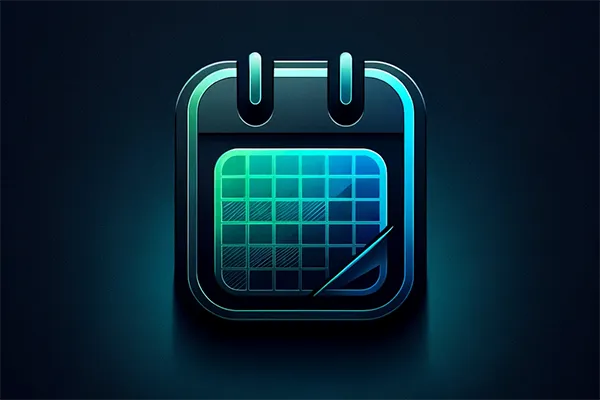Stefan Gebri
Envision and
Implement.
Join 1,000+ getting mindf*cked every Sunday evening while reading Vizions (you’ll learn a bit about life & business too.)
Resources
Join The New 1%
Tools to use. Clear vision, implementation and guides.

KPI Master Spreadsheet - Free
The blueprint to better track, predict and optimize your numbers for results. Works for any type of conversion-focused online funnel, and comes with a guide on how to use.

Lead Hub - Paid
A place to learn and implement the most effective tactics - from client acquisition to service delivery. Events, guides, and skilled operators that take an active role in your agency.
The Blog
Explore Your Curiosity
Deep dives on human potential, lifestyle design, & digital business.

Run Your Agency Better In 2024
“Sometimes you need to scorch everything to the ground and start over. After burning, the soil is richer, and new things can grow.” - Little fires everywhere, Celeste Ng.
Sometimes, people, art, projects and businesses are like that too.
This year, I failed SMMA.
Lost a lot of time and money.
Lost a lot of team members, contacts and clients.
And it turned out to be one of the best things that happened to me.
In this video, I’ll go over how I failed, how you can avoid falling into the same pitfalls as me, and how I plan to win in 2024.
For those not familiar with SMMA, it’s an online business model centered around offering a service.
This service is often paid advertising, outreach systems, and everything in between aimed at creating more opportunities .
And this agency model is based on a few principles:
1. It’s low barrier of entry
2. It’s high-profit
3. It’s easy, passive, recurring revenue
Turns out, it's complete nonsense. It’s never like that. Especially starting out
My name is Adrian Gebri, and I’ve been in the online freelancing, agency - frankly online hustle space. And I’m intimately familiar with this. Over my time in business, we’ve helped our partners generate over $8 million dollars in revenue.
And there’s something deeply misunderstood in the agency space right now: the complete oversight of what to avoid with the model, what to do and not do to keep your agency alive.
The ideal scenario is you have an agency that runs itself, needs minimal maintenance, is generating a solid stream of revenue with significantly better margins than running a dropshipping store like all the cool kids on the internet.
Your agency should be your asset, not your job.
Just spent the last few days observing agency owners, both in my private network and otherwise, and what I’ve come up with is 3 silent agency killers that nobody pays attention to.
Inconsistency
Poor Management
To not waste time, let me start with the first tactical thing, which is operational inconsistency:
Dream outcome: Smooth operation, minimal modifications, low variability, easy to manage and report.
The ideal agency signs up a client, a sequence of events and information gets sent out to the right people.
This allows everything to happen on time, is easy to manage and track and is robust enough to not place immense pressure on any one team member.
Every client is more or less the same in terms of the mechanism that needs setting up. Same type of ads, same sequences, different branding. That’s the goal.
The problem: Nothing is mapped out, no responsibilities assigned, no KPIs, expectations and deadlines set.
Additionally, nobody thinks about what to do if stuff sinks below KPIs and expectations.
Lets break that down. We outlined where what we want and what the problems are:
1. Setting KPIs 101
This problem is twofold.
You have client service KPIs, so the metrics for your service: FB ads, Google ads, cold emails, conversion rates, reply rates etc.
And then have your own KPIs much the same way.
How I like to work this is instead of starting with the beginning, lets start with the end in mind.
Say you have a client, and you run Facebok ads for them.
They want 10 sales a month for whatever.
There are several numbers that decide wether or not that is possible and will or wont happen.
And there’s two stages:
Action and conversion.
So what the overarching perspective is this:
Action: 100 emails sent
Conversion: 1 sale
Not real numbers.
Now below the hood of that there’s a lot more action-conversion pairs:
Absolute pairs
100 emails sent > 80% opened > 15% clicked > 5% booked > 3% showed > 1% closed
Or relative pairs
100 emails sent > 80% opened > 20% clicked > 40% booked > 60% showed up > 33% closed
I’ll probably depict this. And throw it in as a freebie.
And so if you want to work out the number, the adspend, the impressions and ALL of the other action items, you can follow this structure.
You can also grab a copy of this spreadsheet for free in the link in description.
This way of going about your numbers gives you power over the outcomes and a rought estimate of input-output ratio.
So if you want 1000 book sales, you need to reach to X amount of people every day.
You think you can do it? Great. Do it. What happens if you get 999 book sales? Is it a failure? You’d probably say no, because you did what is required to get there. And the action item and conversion is the only thing you can influence.
Instead of setting outcome goals, input goals are more relevant, both for yourself and for your clients. Figure out how many actions it takes, be it impressions, adspend email sends, DM’s, cold calls and then work on improving the conversion rate. That is all.
What happens if you DONT meet KPIs?
There always comes a storm, there always will be periods where performance sinks.
If you’re not ready, scrambling last minute to patch your swiss-cheese ship of a situation is hell. You’ve done it, i’ve done it and so has everyone else.
The solution? Plan.
“If the ads with X offer sink below Z CTR, replace with Y offer”
“If this creative gets saturated, switch with the next 3 creatives”
Most of this occurs at the top of your funnel. As longs as the audience remains somewhat constant, conversion rates dont change much on lead forms, landing pages, etc.
So have a plan. Have backup offers, backup creatives you can slot in.
Anything is better than being all over the place, burning you or your clients money and having no end or solution in sight.
It’s funny in hindsight, but in the moment it’s not fun.
Preparing for the worst should be part of your process, which is what I’m covering next:
Managing sprints & reporting (People dont quit after they lose, they quit on their way home)
If you’re not familiar with the concept of sprints, let me introduce you to them:
Sprints means the sequences of steps that happen when you sign a client.
So lets say you sign up a client, you then have to go on an onboarding call, you have to gather information, then you have to write copy, design the creatives, build the landing page, set up the automations and everything else that you do.
Ideally, that sequence stays more or less the same to keep operations smooth.
Now, you have to set all of that up in a way where you can stay on top of what happens in your agency. One way is for you to do it yourself and just write stuff down.
The better way is to have everything listed out on a spreadsheet, like so, and all of your team members can share progress with you and you can see all the progress that is or isnt happening with a specific client.
There’s better solutions than this like Asana, Monday.com but this is significantly better than nothing.
When you do have things framed like so, there’s another important aspect you have to account for: reporting.
When you order any sort of customized, expensive supercar, what they do is during the manufacturing process, they inform, share images, share progress with the customer.
And this is because of a simple principle:
Sportspeople dont quit when they lose a game, they quit on their way home.
They quit when someone else or themselves start getting in their own head.
“Why do I even bother?”
“Of course, we’d lose”
“My team is filled with idiots”
“All this effort and we’re back to zero”
Similarly, after you take payment from a customer, if you dont have a grip on solid reporting BEFORE you even start a campaign, this is what they see:
Someone takes their money, and for 1 to 2 weeks there’s radio silence. They hear back from the agency only after they reach out to inquire on what is happening.
And the 24 hours after they make the transaction are absolutely crucial. That timeframe alone, independent of results can determine wether or not they renew after 30 days.
So make sure you treat them well, you keep them up to date with EVERYTHING that is happening.
Send them a welcome email, give them some extra value, tell them whenever each stage of the setup process is finished.
The difference in relationship and trust they have with you BEFORE you even start is night and day.
And if you’re struggling with churn, with people leaving 1-2-3 months after they sign up, there’s two causes to it:
1. Lacking performance (because no matter how good of a relationship you have with them, if you’re just wasting their money they wont renew)
2. Lacking trust and relationship (sometimes, even if you do good they just wont perceive it as such)
If you had to pick one over the other, performance should be your focus.
But for reporting, its such an easy thing to just set up once and have that bonus for all your future clients there’s no excuse not to do it. Takes a couple hours, I’ll make a tutorial on it if you guys feel like it would help.
On the topic of making your customers feel good, know that something is happening and relieving uncertainty, its not just clients you have to manage.
You have to manage your teams and your own ups and downs. Sounds simple enough, harder in practice.
And this I think is the one of the biggest business killer for everyone starting out on their first business, their first sidegig, first hustle etc.
And this goes back to mismatched expectations and grounding yourself with the action items and not the outcome. Input vs output.
Ideally you spend little money, little effort to close big clients, you do the work or your team does the work, everyone makes a shit ton of money and you keep them on board forever.
And that is what you want to strive for, but its far from reality.
If you’re just starting out, you’re in your first 2-3-4 years in business. And yes, I said 2-4 years in business, big shit takes time, OF COURSE shit will go wrong.
Of course you’ll mess up, you’ll lose money, time, sleep, of course you wont keep your clients forever, of course you will not always deliver, of course your team will feel down after losing client after client, of course you will feel uncertainty. This is what you signed up for, and this is what hard in business feels like. And that’s okay.
Keep doing the doing. Strive for the output and outcome but focus on the input.
In regards to your team, after you lose a client, remind them “hey, we did everything by the books. There’s stuff we can improve, but everything we could do weve done. We’ve set everything up in time, we tempered expectations, we configured everything properly, and we’ll do it even better ont he next one.
And the same to yourself.
You look at that goal of yours, be it 10k a month or whatever arbitrary amount of money you have in your mind, figure out the input required, and focusing on IMPROVING your numbers, not having absolute output generated.
Your expectation should be of you consistently matching input goals. That is all.
Now for you to get the most out of what you put in, you need leverage.
Leverage and inefficiencies
If you’re the one doing everything, you’re the problem in your agency.
You’re also the solution.
“If I do everything, then I can know for sure everything is done right”
Yes. You get to be right, you get to make sure everything is done properly.
You’re also bottlenecking the entire “agency”. You’re a freelancer, not an agency if you’re the one doing everything.
Which is not a bad thing in itself. If the goal is to do all the work and make enough to keep you afloat and maybe with a little extra, thats fine. But it’ll be extremely difficult if not impossible for you to reach six and seven figure by yourself if you’re doing everything with an agency model.
How much money you make is a factor of how expensive the thing you sell is(times margin) x how many of those things you sell.
So if you want to grow your business, you either raise the prices, sell fewer things to fewer people but at higher prices with better margins, sell more stuff at lower prices to more people, or an option in the middle.
There’s upside and downsides with both, but I think a hybrid approach works bests. Get a lot people so you’re not in risk of going to zero if one leaves, keep your services affordable, and upsell (hence increasing your margins) to the best fits.
Instead of going for a 5k a month fee, which only 5-10 percent of prospect will sign up for, you can go for something entry-level, get some people that bought your product because buyers buy again.
Blow their socks off with the value you provide, build trust and establish a relationship, and then if you have an offer that fits with what you previously gave them and has positive impact and its something that they want, go ahead and share that with them.
There’s good chances a good handful of people will sign up for your new offer/service.
And that is a way to get the best of both worlds.
If you position yourself as affordable to start with, and you have a good MPF. your next problem will be servicing everyone.
Which is why you wont / should not be the one doing all of the work.
Gain leverage through automation, stop sending all the welcome emails manually. Think of actions you can take that will lower your workload in the future.
What can’t be automated, think of the activities in your agency that are important, yet you dont HAVE to be the one doing it.
Think setting up ads managers, making changes on creatives, duplicating and adapting landing pages, reporting daily performance, setting appointments, etc.
All of these activities can be outsourced to people that have the specific skills required.
If you’re the only one that can grow the company (which in the beginning, you are that person), then fulfillment work after you have a system in place should be outsourced.
Imagine you have to spend half a day making static ads for you lead generation facebook ads clients. Instead of doing that, you could’ve prospected and worked on how the system flows together more efficiently.
Instead you bear the opportunity cost for doing what someone else couldve done faster, easier and cheaper.
And now you might say “well if I do it its free, so I get to have better margins”.
Sure, you get to have better margins if your quality is the same.
But the cost you still have to pay is the opportunity cost.
Which in this case is getting more client, getting more leads, appointments, optimizing our current systems, or ANY other activity that has more leverage than labour. Which by the way, is anything else.
You traded off the cost of a VA for a day, say $50 for the price of not having one extra client worth 500, 1000, 2000 dollars.
For me, at the end of the day, the size of the pie matter more than how big of a slice relative to its size I get.
And the main determinant of the size of the pie is, at most points in the beginning, dependent on the leverage of the activity you choose to put your time and effort into.
The Top 1%
6 Reasons Why
Vizionaries Are Succesful
1.
Masters of Action
Vizionaries know that not making a decision is a decision. They take immediate action on their goals. They know that an imperfect plan executed today is better than a perfect plan executed next week.
2.
The Hero of Their Own Story
No one is coming to save them and they know that their fate is in their own hands. They take complete ownership in defining their values, recognizing their weaknesses and overcoming obstacles.
3.
Dedicated To Their Clients
At their core they are in this business to change lives, help people, and be masters of transformation. The success of their clients is their success as well.
4.
Lifelong Learners
There is no room for ego in the journey of a Vizionary. In order to remain on top of trends andpractices, Vizionaries are constantly growing, accepting feedback, and trust in their coaches, just as their clients trust in them.
5.
Hungry for Growth
Vizionaries are proud but never satisfied. Once they reach a goal they are already looking ahead to what’s next. Their sights are always set on the next level.
6.
Expert Communicators
Tough conversations are second nature for Vizionaries. They say what needs to be said and they don’t sugarcoat it. They know that keeping valuable feedback to themselves hurts everyone.
About Me
Who is Stefan Gebri?

Hey, I'm Stefan Gebri.
I’m an acquisition advisor for 7-9 figure companies, agencies, and creators.
I’m the guy they come to when they feel they have a good start, but would like to push growth and their business just that much further. No fancy sales funnels or pushy marketing.
I help people squeeze more out of their client acquisition and marketing so they can focus on growing their company and sell their products & services effortlessly.
As a freelancer turned business owner, I’ve developed effective systems with time, skin in the game, hundreds of thousands of dollars in education and coaching from the top voices in the space, millions of dollars spent in marketing and experience with over 300 businesses, clients and students.
The only way you can work with me at the moment is exclusively through my company, Lead Hub.
If you want to build a solid foundation for you company and acquisition systems with someone who can get results, book a consult here and my team will reach out to you.
























Gain clarity and build your vizion.
Gain clarity and build your vizion.
Join 1,000+ getting mindf*cked every Sunday evening while reading Vizions (you’ll learn a bit about life & business too.)
Join 1,000+ getting mindf*cked every Sunday evening while reading Vizions (you’ll learn a bit aSocial Iconsbout life & business too.)


